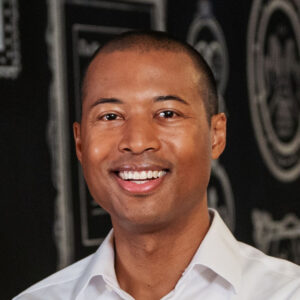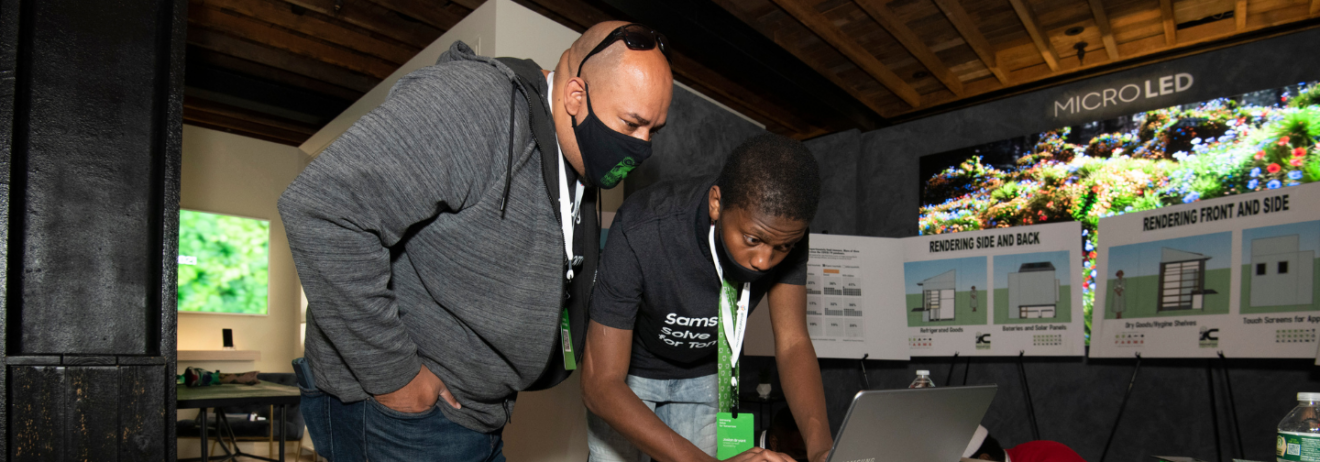Baltimore’s Green Street Academy teacher Harry Preston and students compete in the 2021-22 Samsung Solve for Tomorrow competition.
The post is sponsored by Samsung’s Solve for Tomorrow program

As a Black man who grew up in New Haven’s under-resourced public schools, I have seen firsthand the challenges Black students and teachers face in STEM education.
While the impacts of race surrounded my school-age self, I was incredibly naive about it. Math and science with their logical clarity were my favorite subjects. I believed that by excelling in class, no one could hold race or origin against you.
But despite my love for STEM, and my Harvard physics degree, when I became a teacher myself, I quickly realized that solving equations was only a small part of the battle.
The lack of Black STEM educators
The sad truth is that there is a dire shortage of Black STEM educators. A DonorsChoose survey found that while 15% of public school students are Black males, only 2% of teachers are Black males. This disparity is unacceptable, with real-world consequences. Indeed, research shows that Black students who have at least one Black teacher between third and fifth grade are 33% more likely to graduate.
What can we do to address this? One solution is to elevate the Black educator experience and provide more support to Black teachers and their classrooms. This is something DonorsChoose is committed to doing. Our core principle is that all kids can learn and positively impact their communities. Through our platform, anyone can help classrooms in need, and we work to connect more donors and partners with Black teachers and schools.
Another solution is promoting STEM education in ways relevant and meaningful to students’ lives. This is why I am excited about Samsung’s Solve for Tomorrow program, a STEM competition where public school students submit ideas on how STEM can help change their communities. Last year’s National Sustainability Winner, Rhode Island’s Central Falls High School, identified environmental racism as a problem in their city and worked to turn brownfields into green spaces like parks and community gardens. This project not only taught students about STEM, but also about the real-world applications of these subjects and how they can make positive change.
Establishing Black STEM role models
As a former teacher, I know positive role models have a powerful impact on students. Students who see themselves represented in their teachers feel seen and validated for who they are. This is why we need more Black STEM educators – to not only teach students about STEM subjects but also serve as role models and mentors, helping students believe in themselves and their abilities.
Wishful thinking about STEM education won’t solve the challenges facing Black students and teachers. But by elevating the Black educator experience, promoting STEM education in relevant and meaningful ways, and providing more support to Black teachers and classrooms, we can make progress towards a more equitable future.
Alix Guerrier is CEO of DonorsChoose, a nonprofit website enabling anyone to help classrooms in need. A former teacher, he co-founded EdTech company LearnZillion, holds a Master’s in Education and an MBA from Stanford University. Alix lives in Washington, D.C., with his wife and daughters.

